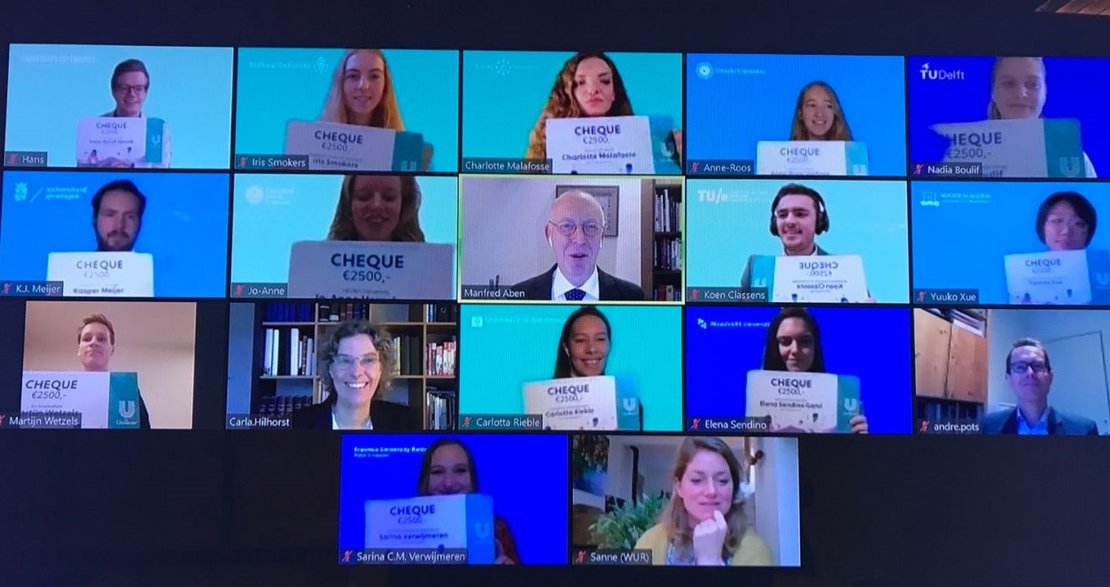Hans David Wendt, now a PhD candidate, was awarded the Unilever Research Prize on 26 November. The University of Twente nominated him for his master's thesis 'Integrating electrochemical CO2 conversion with homogeneous catalysis - is it synergistic?’
Unilever offers this prize to express its appreciation for high-quality scientific research carried out at Dutch universities. The prize consists of 2,500 euros.
Research into the conversion of CO2
Hans David researched the conversion of CO2 into raw materials. "CO2 emissions are a global problem. By emitting too much CO2, we set climate change in motion. You can take that CO2 out of the air again and do something useful with it. In my research, I have focused on converting CO2 into raw materials. The focus was on investigating the possibilities of combining different ways of converting CO2 with each other".
A lot of research has already been done into electrochemical CO2 conversion into a product. The products that result from this are usually not very expensive, but the process is. "My research aimed to investigate whether combining different ways of converting CO2 would contribute to a more economically attractive process with a more expensive end product".
Together in the keg
"My motivation for the research was to combine two processes: electrochemical conversion of CO2 into an intermediate product, and then conversion of that intermediate product into an end product by other methods. For this purpose, I investigated whether there are any possible routes to take two steps in a row. This showed that there are several promising routes, and I went further with one route. The result is that processes can be combined, but you always have to make some sort of compromise to achieve the ideal situation for both processes. After all, both processes need to be able to 'work together'.”
Wim Brilman: "Hans David is an all-around researcher who, partly thanks to his good communication skills and positive critical attitude, was able to bridge the gap between the various areas of expertise in the diffuse playing field between electrochemistry, catalysis, and reactor science. We’re on the way to a closed carbon cycle based on CO2 from the outside air and powered by sustainable electricity. Based on his graduation research and his individual qualities, he was nominated for the Unilever Research Prize".






